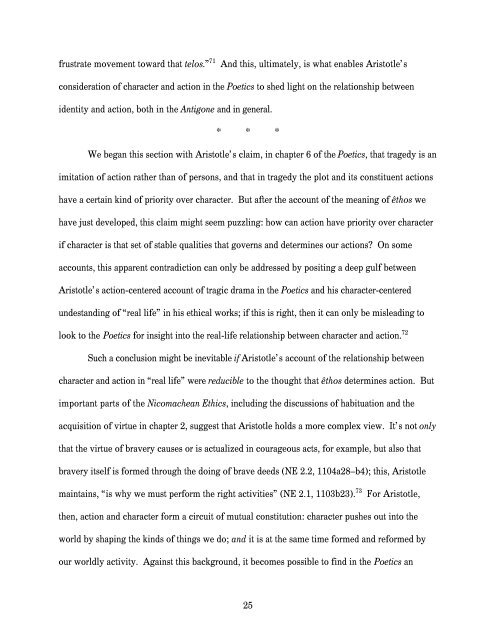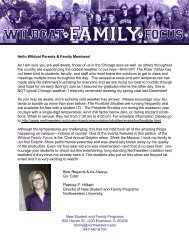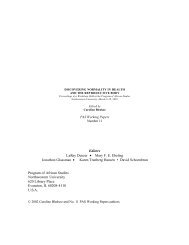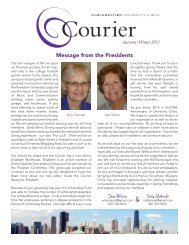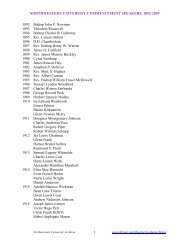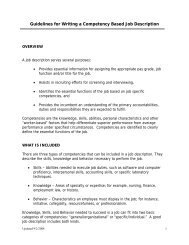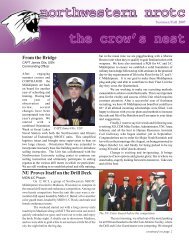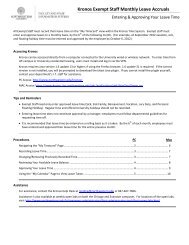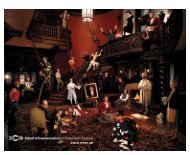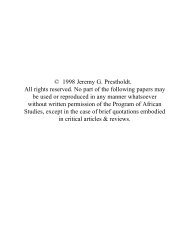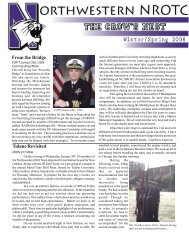TRAGIC RECOGNITION: ACTION AND IDENTITY IN ANTIGONE ...
TRAGIC RECOGNITION: ACTION AND IDENTITY IN ANTIGONE ...
TRAGIC RECOGNITION: ACTION AND IDENTITY IN ANTIGONE ...
Create successful ePaper yourself
Turn your PDF publications into a flip-book with our unique Google optimized e-Paper software.
frustrate movement toward that telos.” 71 And this, ultimately, is what enables Aristotle’s<br />
consideration of character and action in the Poetics to shed light on the relationship between<br />
identity and action, both in the Antigone and in general.<br />
* * *<br />
We began this section with Aristotle’s claim, in chapter 6 of the Poetics, that tragedy is an<br />
imitation of action rather than of persons, and that in tragedy the plot and its constituent actions<br />
have a certain kind of priority over character. But after the account of the meaning of êthos we<br />
have just developed, this claim might seem puzzling: how can action have priority over character<br />
if character is that set of stable qualities that governs and determines our actions? On some<br />
accounts, this apparent contradiction can only be addressed by positing a deep gulf between<br />
Aristotle’s action-centered account of tragic drama in the Poetics and his character-centered<br />
undestanding of “real life” in his ethical works; if this is right, then it can only be misleading to<br />
look to the Poetics for insight into the real-life relationship between character and action. 72<br />
Such a conclusion might be inevitable if Aristotle’s account of the relationship between<br />
character and action in “real life” were reducible to the thought that êthos determines action. But<br />
important parts of the Nicomachean Ethics, including the discussions of habituation and the<br />
acquisition of virtue in chapter 2, suggest that Aristotle holds a more complex view. It’s not only<br />
that the virtue of bravery causes or is actualized in courageous acts, for example, but also that<br />
bravery itself is formed through the doing of brave deeds (NE 2.2, 1104a28–b4); this, Aristotle<br />
maintains, “is why we must perform the right activities” (NE 2.1, 1103b23). 73 For Aristotle,<br />
then, action and character form a circuit of mutual constitution: character pushes out into the<br />
world by shaping the kinds of things we do; and it is at the same time formed and reformed by<br />
our worldly activity. Against this background, it becomes possible to find in the Poetics an<br />
25


